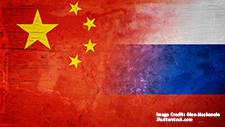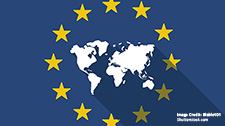Sino –Russian Relations at the Start of the New Millennium in Central Asia and Beyond
Niklas Swanström
Sino–Russian relations have swayed considerably in the second millennium. During the Yeltsin era, China–Russia relations were still strong, but this changed abruptly after Putin’s accession to the presidency in 2000 and his initial pro-Western adventures. This was, in no small part, due to Russia’s involvement in the war on terror, together with Russia’s complicity in a US military presence in Central Asia which did not go down well in Beijing. Putin’s domestic constituency found his swing into Washington’s fold equally awkward, which created no small amount of criticism in Russia. Convinced that things could not get much worse, Putin’s acceptance of NATO’s expansion into the Baltics, his approval of US withdrawal from the ABM-treaty, and his quiet consent for an American military presence in Georgia raised additional fears in the Duma, within Russian public opinion, and to some extent among the Chinese. This was perceived as a direct surrender to American superiority and aggression, and it would not last for long.
Related Publications
-
ISDP Annual Report 2023
ISDP’s Annual Report for the year 2023. We look back on 2023, a year in which tensions and conflicts captured the strategic space in ISDP’s focus areas, making headlines around […]
-
The Political Split at the Heart of Taiwan’s Struggle against Foreign Disinformation
Taiwan’s struggle against foreign disinformation and concerns about China’s impact on its 2024 election has received much international attention recently. This issue brief examines the domestic and international politics behind […]
-
Sino-Russian Relations, From Where – To Where
Since 1949, relations between the Soviet Union/Russia and China have been oscillating between formal military alliances and military border clashes. In the early phases, the cooperation was beneficial for both […]
-
Messaging Mayhem: The EU’s Struggle for Clarity on Israel-Palestine
Few long-standing conflicts evoke such intense discussions and foreign policy debates as Israel-Palestine, be it within or between the European Union’s 27 member states – informed by differing historical and […]
-
The New External Politics of the Horn of Africa: Competition and Cooperation
In light of increasing global tensions exacerbated by the Russia-Ukraine war and the return of great power strategic competition, ISDP’s Asia Program intern Lwanga Egbewatt Arrey sat down with international […]




